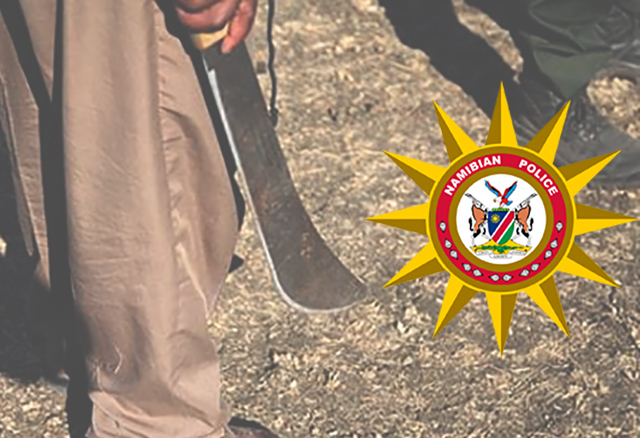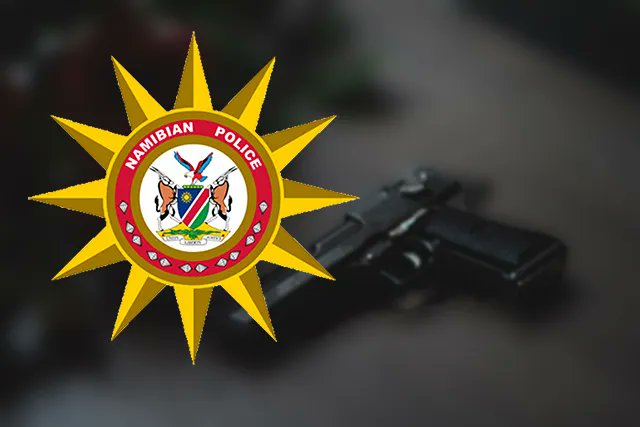The air was thick with anticipation.
The task force, led by captain Amutenya, had finally caught a break. A tip-off had come in from a reliable source – a farmer who swore he had seen masked figures moving through the dense mahangu fields near Okankolo late at night. The place was remote, perfect for a hideout. Captain Amutenya had been chasing ghosts for weeks, but this felt different. This time, they were close.
They are acting on a tip about sightings of the group of women said to have kidnapped the young man who was accused of raping his grandmother a few weeks ago.
The convoy of four police pickups, with officers sitting on the benches in the back, moved like a snake down the narrow, dusty road. As they moved, they all remembered the order: to scan for every shadow and movement in the tall mahangu plantation.
The officers gripped their rifles tightly, and trickles of sweat started to form under the helmets. This was the fear of the unknown – of the Silent Shadows.
Captain Amutenya’s mind raced. This wasn’t just about an abduction anymore.
Over the past month, the disappearance of rapists had become more frequent, and each case was more brutal than the last. Some had been found hanged, others mutilated beyond recognition. Each crime scene left a chilling message: We are watching.
The community was already split in two – those who feared the vigilantes and those who believed they were the answer to their prayers.
As the convoy slowed, Amutenya gave the signal to stop. The homestead lay ahead, cloaked in darkness, its silhouette barely visible against the horizon. He had a sudden feeling of confidence that this was the place.
“Remember, colleagues” Amutenya whispered into his radio, “no mistakes. We’re dealing with trained professionals. Over!”
He was determined.
The officers moved out, spreading through the fields like lions stalking zebras in the Etosha. The tension was high as every rustle of the wind and every creak of a branch had them on edge. Then, suddenly, there was a fast, shadowy movement ahead.
“Go!” Amutenya barked, and the officers surged forward, guns drawn. The air exploded with action as gunshots broke the silence of the night. A group of masked figures emerged from the shadows, their movements swift and calculated. The officers opened fire, but the vigilantes were just too quick. One by one, the officers fell, disarmed and overpowered by the ruthless efficiency of their attackers.
Amutenya felt a gloved hand wrap around his throat from the back. She moved like a mamba, silent and deadly. A sharp knee drove into his lower back, knocking the wind out of him as he struggled to breathe. His hand reached for his holstered pistol, but it was gone. She had already disarmed him.
“Who are you? What do you want?” he asked, his vision blurring as he struggled to breathe.
The woman didn’t answer. She leaned in closer, her face obscured by the tactical mask, her breath hot against his ear.
“We are justice,” she whispered, her voice cold as ice.
Before he could respond, she was gone, as if she had melted back into the shadows.
Amutenya stumbled to his feet, with his hand on his throat to feel for signs of tissue damage. The mahangu field was a blur of chaos as officers scrambled to regroup, but it was too late. The vigilantes had vanished, leaving nothing behind but the bodies of fallen officers and the bitter taste of defeat.
Back at the station, Amutenya faced the brutal truth: they had been outplayed once again. The press would tear him apart, the community would lose more faith in the police, and the politicians will all have something to say. But there was something else eating at him. During the skirmish, he had seen something – or rather, someone – that didn’t belong.
A tall figure, masked like the others, moved differently, more deliberate, and almost protective. No one had a clear profile of the vigilante members, but this particular individual felt familiar. Amutenya was certain he had heard that voice before, too, perhaps on television or social media. He couldn’t shake the feeling that she was someone well-known.
The police captain finally decided to turn to social media, carefully watching popular female influencers while wearing good headphones, hoping to match the voice that haunted him in the field.
He thought grimly that if any social media personality had joined the vigilantes, it would mean the keyboard warriors had traded their keyboards for weapons – a frightening possibility.
Stay informed with The Namibian – your source for credible journalism. Get in-depth reporting and opinions for
only N$85 a month. Invest in journalism, invest in democracy –
Subscribe Now!








